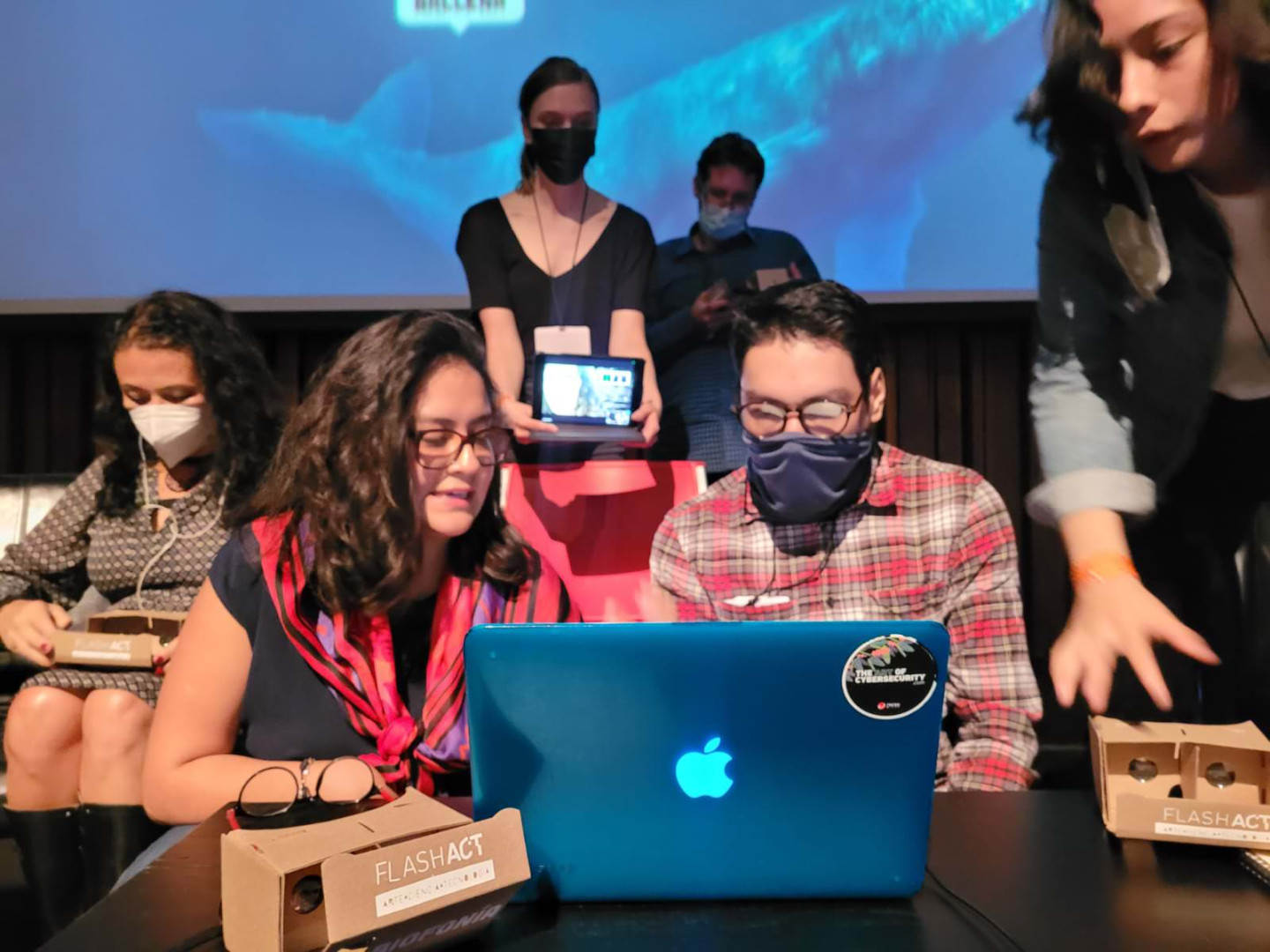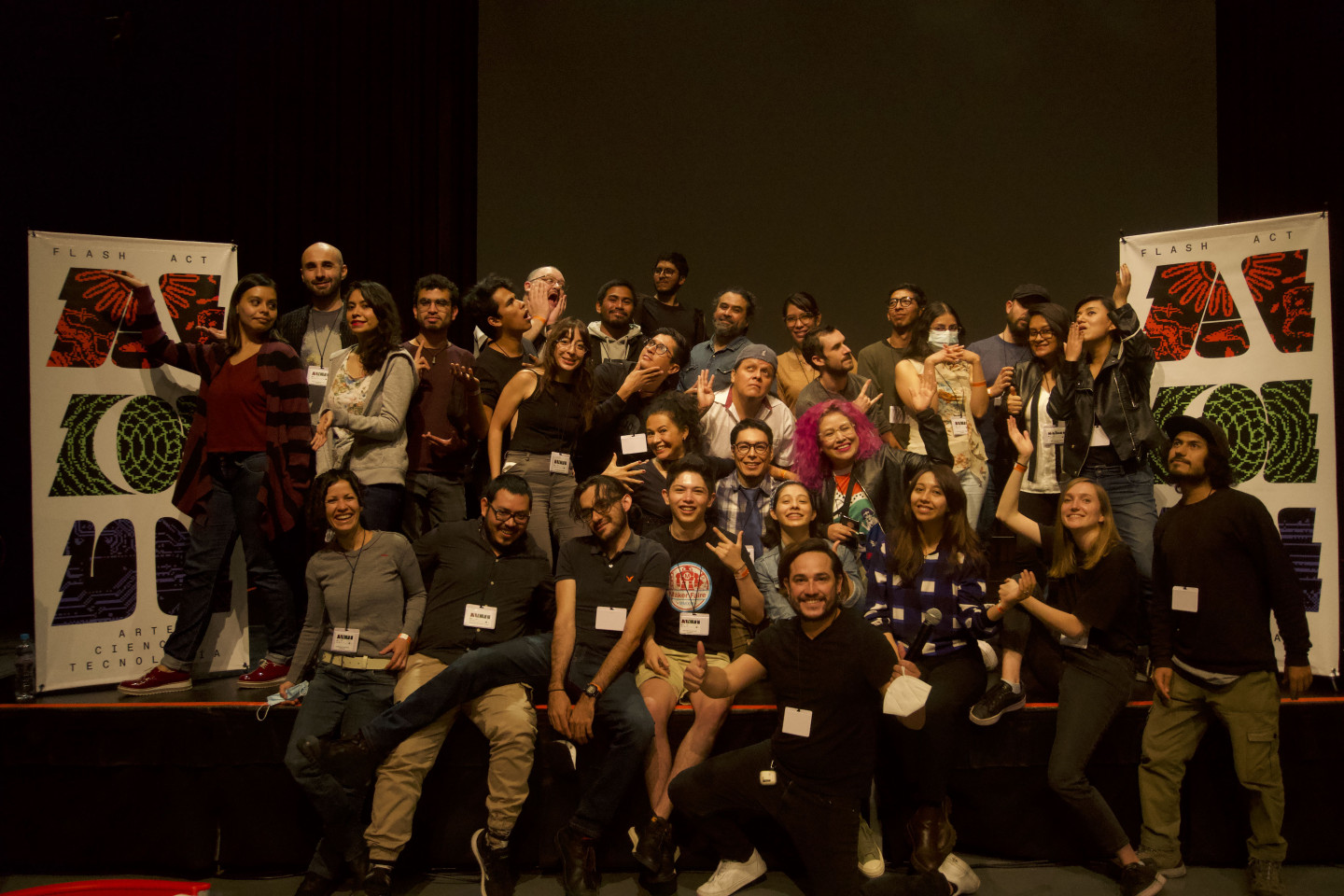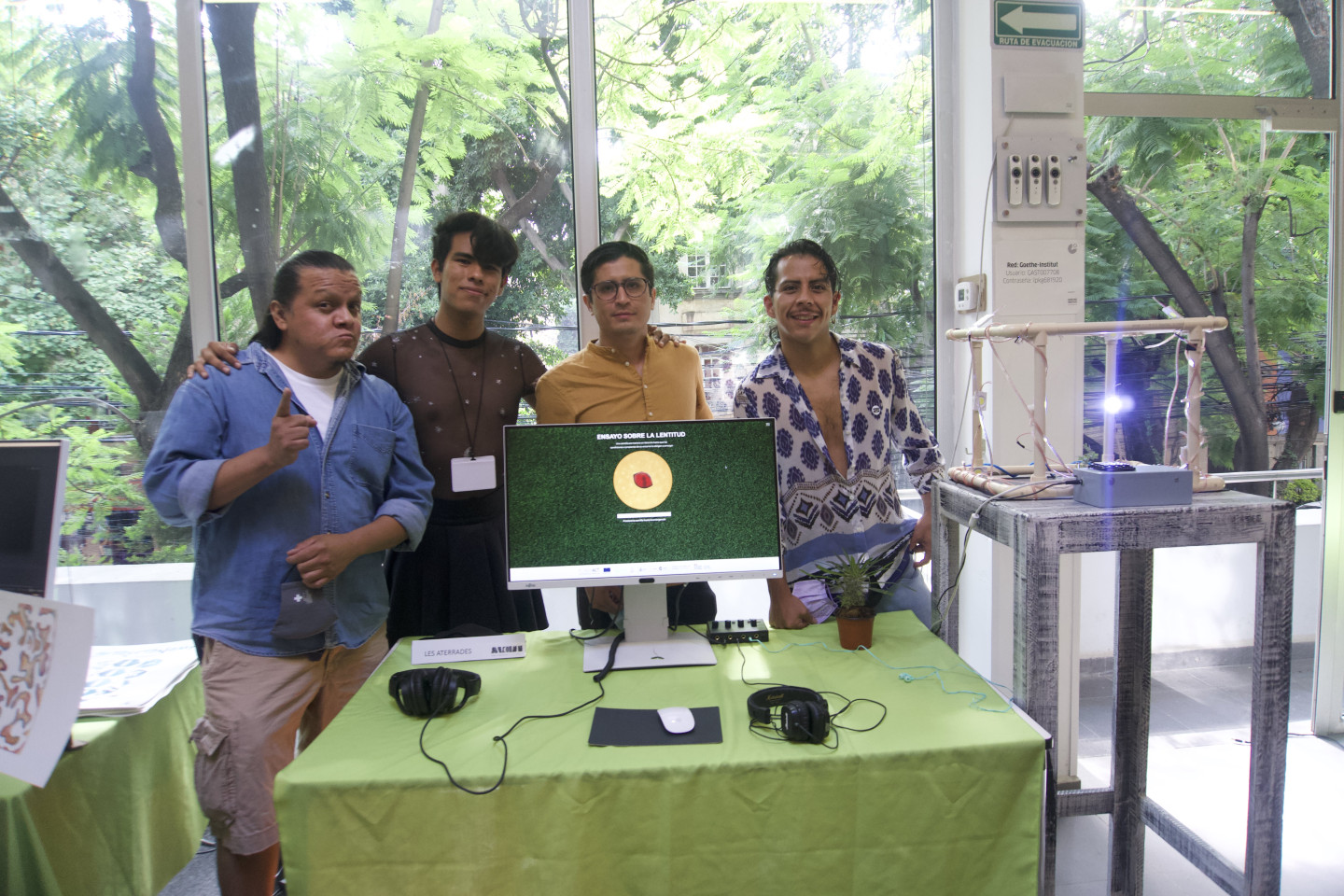Scientific communication plays a fundamental role in our everyday lives and shapes our understanding of the world. During the pandemic, it became apparent that the way scientific output is communicated is crucial. Information literacy skills help to understand data and judge information according to its trustworthiness.
Flash ACT was held as a hybrid programme to explore new pathways be- tween art, science, and technology to develop innovative tools for scientific communication. The programme encouraged initiatives from Mexico, Central America, and the Caribbean to transform our relationship with the environment in a deep and significant way. Work results were addressed to real challenges, translating them into experiences, promoting systematic thinking and encouraging active engagement through creativity and curiosity. Flash ACT sought to create a multidisciplinary network, promoting new initiatives around artistic creation and scientific communication and in that way contrib- uted to the breaking down of barriers between art, science, and technology in an increasingly interconnected world.
From lab to festival
Flash ACT was organised in a series of online, physical and hybrid events, divided in three stages: Lab, Encounters, and the Festival.
The main target audience included scientists, artists and digital creators from Mexico, Central America, and the Caribbean. 16 multidisciplinary teams were initially formed during the 48 hr Lab. Teams of 3-5 needed to include all necessary profiles and skills to produce a first prototype. From this Lab 8 finalist teams were selected. The following two Encounters were organized to facilitate long-term collaboration, in which the teams received mentorships from international and national experts to develop their projects.
The working results were presented at the Festival. With all the mentorships, masterclasses, workshops, and conferences arranged in the three events, participants learned to critically examine and use data for analysis, visualization, and storytelling to communicate scientific output in artistic and technologic ways, such as VR/AR experiences, sound immersion, transmedia, coding, community intervention, interactivity, etc. The results presented were addressed to current local challenges, translating data in a way to provide concrete experiences, promoting systematic thinking and citizen participation.
All eight projects selected under Flash ACT 2022 programme included the UN SDGs into their development. Additionally, “Land Ethic” was the 2022 Flash ACT theme, to highlight environmental sustainability.
Flash ACT was a very innovative and interesting experience at the regional level. Many congratulations for creating these much needed spaces.
Participant, Flash ACT 2021
After the festival, the jury announced the final winning project of Flash ACT 2022: The team Les Aterrades with their project "Ensayo sobre la lentitud" ("Essay on slowness"). The team will receive a workshop specifically designed for the needs of the project, in order to ensure its continuity after Flash ACT.
The members of the jury also awarded an honorable mention to the team Los Aluxitos XD with their project "Nikté Ha" for music. Congratulations!
"Ensayo sobre la lentitud" is a video dance and a website that addresses and emulates the complex relationship between humanity and plants; its experimentation is a small journey and deconstruction of the relationship-tyranization on plants, narrated by the choreography and the soundscape, where in a playful and integrated way, information on different issues will be shown.
The page is therefore, a log and instructive for watching and listening to the final video dance: ensayosobrelalentitud.com
It was enriching to meet a lot of people with different backgrounds and curriculums; to make it a very interesting dialogue. I come from a science background, so you always appreciate seeing the world from another side.
Christopher Cedillo, Participant on Ensayo sobre la lentitud by Les Aterrades



